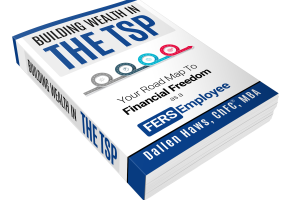Two very common ages to retire as a federal employee are 60 and 62. You might think that the difference between the two ages doesn’t matter as long as you’re eligible to retire, right? But, it could actually have a very big impact on your retirement. Also, the eligibility to retire at 62 vs 60 is very different as well.
Eligibility to Retire at Age 60 vs 62
You would think that the minimum years of service with a full retirement for age 60 compared to age 62 wouldn’t be that different, but it is.
The minimum years of service to retire with a full retirement at age 60 is 20 years. In contrast, the minimum years of service to retire with a full retirement at age 62 is 5 years of service. Although the age difference is 2 years, the difference between the minimum years of service is 15 years.
Now you might be thinking, why doesn’t everybody just work 5 years and retire at 62? Turns out, even if you retire with a “full retirement” at age 62 with 5 years of service, your benefits are very different despite both of them being called a “full retirement”.
Now, let’s take a look at your federal benefits and how each one might be affected by retiring at a different age.
TSP (Thrift Savings Plan)
The TSP is the federal government’s retirement savings plan for federal employees. Each pay period, an employee can select how much of their paycheck will be deposited into the TSP.
Let’s say you’ve been with the federal government for 20 years and you are 60 years old. You have the option to retire now or at 62. If you decide to retire now, and start taking TSP withdrawals, your TSP will have 2 less years of greater growth and 2 more years of withdrawals. Because you are not working during those two years, you have to supplement part of your salary with retirement money.
Now, let’s try this same example, but instead of retiring at 60 you retire at age 62. Retiring at 62 would give you two more years of having a salary and 2 more years of greater growth in the TSP (without withdrawals).
The difference between retiring at age 60 versus age 62 could have a decent impact on your TSP. If you are nervous that your TSP is not big enough for you to retire, working an extra 2 years might not be a bad idea.
Keep in mind, federal employees can take money from their TSP at age 59.5 (and above) without penalty even if they’re still working. But, it is not a common option if they’re still working, because they will already have a consistent income source.
Pension (& the 1.1% Boost)
Another benefit of being a fully retired federal employee is pensions. Here is how the pension is calculated:
If you were to retire at 60 compared to 62, your pension will be different. Your high-3 salary will probably be a little bigger. You will have 2 extra years of creditable service. And you might be able to qualify for the 1.1% multiplier. Normally the multiplier is 1%, but if you retire at age 62 with at least 20 years of service, the multiplier becomes 1.1%. If your multiplier increases from 1% to 1.1%, your total pension increases 10%. That could be a big difference during your retirement.
So, is waiting the extra two years until you reach 62 worth it when we just look at the pension (if you have at least 20 years of service)? It depends. If you are very dependent on your pension in retirement, it might be a good thing to consider.
Social Security
You might wonder how your social security benefits could change if you chose to work another two years. Social security is calculated by using the top earning 35 years of your career. If you have not worked for more than 35 years, then any years left over are counted as zeros. So, if you worked until age 62 compared to age 60, you might have two extra years that boost your social security benefits by a fraction or you might have two higher earning years that will boost your social security.
Most people make the most when they are close to retirement. So, odds are, you will have a slightly higher social security benefit if you work until age 62 compared to age 60.
Another thing to consider is that the minimum age to receive your social security benefits is age 62. So, retiring at age 62 is definitely an advantage if you want to take social security immediately. If you retire at age 60, there is also the other option that might be available called the FERS supplement. If you would like to know more about the FERS supplement, here is the link. Long story short, the FERS supplement benefit isn’t usually as big as your social security benefit at age 62.
Conclusion
At the end of the day, working an extra 2 years from age 60 to 62 will only make your retirement financially better. But, for some federal employees, it’s not worth working the extra 2 years. There’s no perfect answer for everyone. Some people just want to retire as soon as possible and if they feel that they’re financially ready, that’s great. Hopefully this helped you to get an idea of what retiring at age 60 vs 62 could look like.


